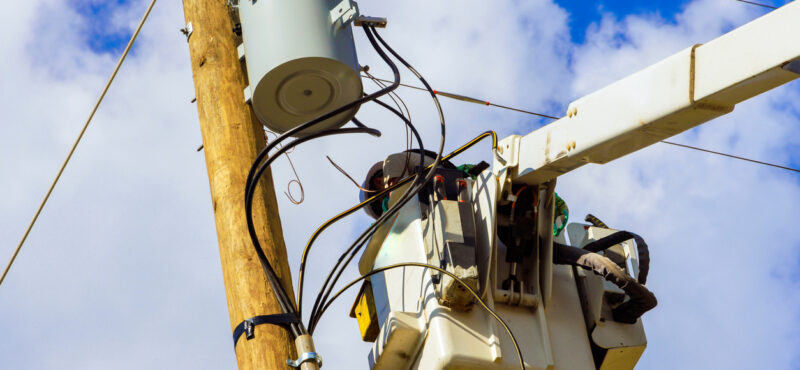You check your flight status on your phone — nothing loads. You try to call 911 during an emergency — the call won’t go through. You’re in the emergency room when the hospital’s network suddenly goes dark.
It’s not always a glitch: Across the country, more attacks are targeting the networks that power our internet and phone service — putting people and essential services at risk.
- Between June 2024 and June 2025, there were 15,540+ reported cases of network vandalism and theft.
- These attacks disrupted service for 9.5 million Americans and caused millions of dollars in damages.
More Disruptions, Bigger Consequences
Some attackers are after valuable materials like copper. But increasingly, others are intentionally damaging the lines that connect emergency call centers, first responders, hospitals, and even military operations.
When these lines are cut or equipment is stolen, the effects can ripple fast:
- 911 call centers go dark
- Hospitals lose access to patient records
- Air traffic control systems fail
- Banking transactions stall
- First responders lose contact with dispatch
Bottom line: These aren’t just isolated crimes. They’re growing threats to public safety, national security, and the systems we rely on daily.
What’s Being Done
Across the country, steps are underway to better protect the networks that keep us connected:
- California: A dedicated task force in Los Angeles has led to dozens of arrests and recovered stolen materials.
- Kentucky: A new law now treats broadband lines as critical infrastructure, with stronger penalties for tampering or theft.
Internet providers are also taking action — installing monitoring tools, upgrading security measures, and working closely with local law enforcement to prevent more attacks.
Yes, but: There is still a serious gap. Federal law doesn’t currently treat all network attacks the same. While damage to government-owned systems is a federal crime, most private networks — including those that support 911, hospitals, and banks — fall into a legal gray area.
That’s why national leaders are calling for tougher penalties and clearer protections to help prevent future attacks.
It’s encouraging to see momentum — but lasting protection will require continued coordination between Congress, federal agencies, providers, and local officials.
And you can help, too: if you see something suspicious near a utility pole or network box, report it to your internet provider or local law enforcement. A small step like that can help keep your service — and your community — connected and safe.
